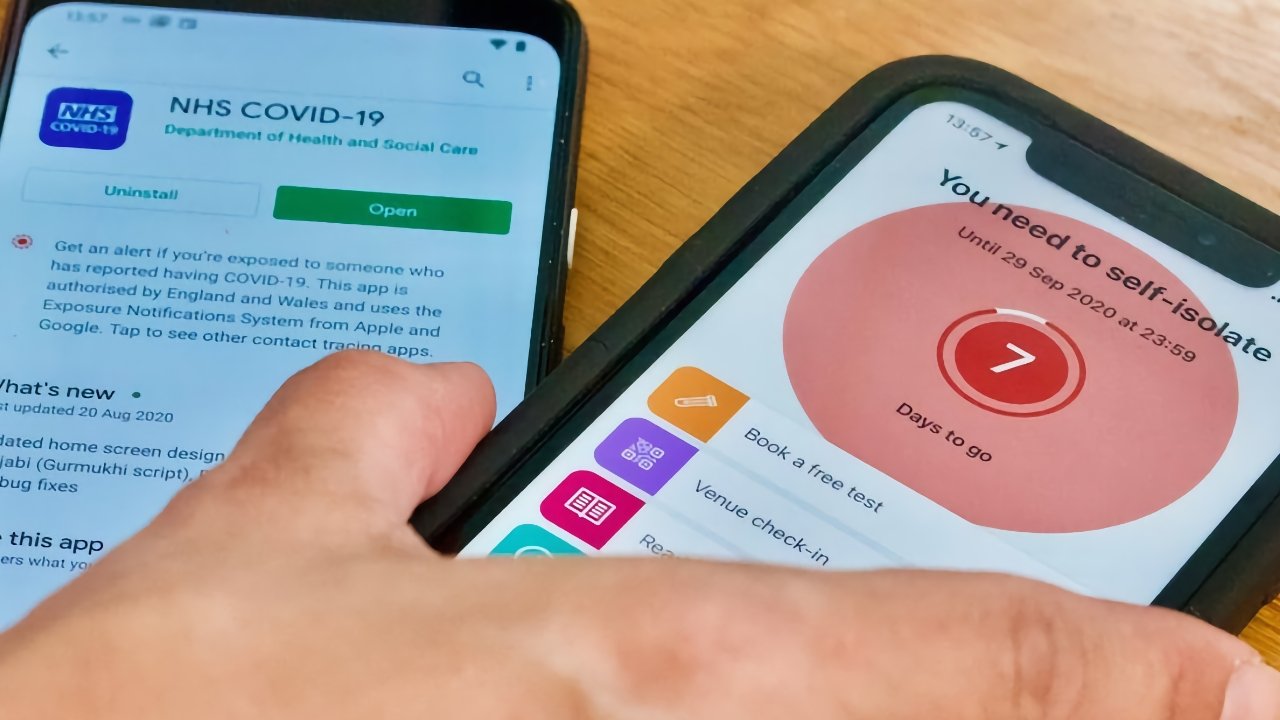After adopting the Apple/Google coronavirus exposure notification technology, the UK's NHS app is reported to have saved up to 8,700 lives.
The UK's controversial COVID app — initially rejecting the Apple/Google model, then failing at a cost of millions of pounds — is reported to have saved thousands of lives.
According to BBC News, a report into the effect of the app estimates between 4,200 and 8,700 deaths were prevented. The report was written in part by the makers of the app, but it's now been peer-reviewed and accepted for publication by Nature magazine.
From the app's release on September 24, 2020, to the end of that year, research says that it was "used regularly" by 28% of the UK population. It's not clear what the definition of regular use is, but it was used by 16.5 million people in this period.
The app found a total of 560,000 positive reports, and sent around 1.7 million exposure notifications to other people.
Researchers say that they used two different methodologies for estimating the effectiveness of the app in this period. A data modelling approach concluded that the app prevented 284,000 cases of COVID, while a statistical analysis suggested 594,000.
"On balance, an effect size between the two estimates seems most likely," the researchers told BBC News.
They also suggest, however, that the figure could be much higher, because app users were more conscious of the need for social distancing. "[They could] maintain a greater distance from others than they otherwise would have done," continued the researchers, "aware that the app monitors distance and could later advise quarantine."
While the study concluded in December 2020, the app has continued to be used. Most recently, however, both Apple and Google blocked an update — keeping the older version available — because the UK government wanted to break the agreements about location tracking.
Stay on top of all Apple news right from your HomePod. Say, "Hey, Siri, play AppleInsider," and you'll get latest AppleInsider Podcast. Or ask your HomePod mini for "AppleInsider Daily" instead and you'll hear a fast update direct from our news team. And, if you're interested in Apple-centric home automation, say "Hey, Siri, play HomeKit Insider," and you'll be listening to our newest specialized podcast in moments.
 William Gallagher
William Gallagher

-m.jpg)






 Wesley Hilliard
Wesley Hilliard
 Andrew O'Hara
Andrew O'Hara
 Malcolm Owen
Malcolm Owen
 Marko Zivkovic
Marko Zivkovic

 Chip Loder
Chip Loder
 Christine McKee
Christine McKee




-m.jpg)





8 Comments
I haven’t read the entire report, but I generally support using contact tracing apps in addition to traditional contact tracing methods.
However, my provincial-level health authority (i.e. state-level) decided not to utilize it, although they did invest time with the feds to see if it could be modified to make it utilized.
Their explanation was vague. As I understand it the app, as-is, creates far more work for the health authority’s resources (contact tracers, testers, and other support) than it would overall benefit the region.
I’m not an expert on contact tracing, but I am disappointed they couldn’t ‘make it workable’, because the value of an app like this includes empowering every smartphone owner to see the impact of their daily decision to leave their home, or otherwise have an interaction with others.